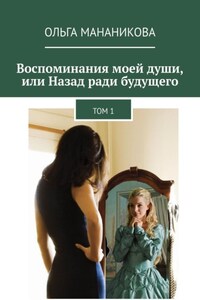Данный сборник тестов составлен на основе предварительных требований ФИПИ (www.fipi.ru). Задания включают тексты, находящиеся в свободном доступе в Интернете.
Таблица ответов размещена в конце сборника.
Для аудиочасти составлены 10 аудиофайлов.
Ссылка на архив в конце сборника.
***
1. Внесены изменения в аудирование, письменную часть и устную части согласно рекомендациями ФИПИ. Иллюстрации цветные (в электронном варианте).
2. Ответы находятся в конце файла.
1.Вы услышите 6 высказываний. Установите соответствие между высказываниями каждого говорящего A—F и утверждениями, данными в списке 1—7. Используйте каждое утверждение, обозначенное соответствующей цифрой, только один раз. В задании есть одно лишнее утверждение. Вы услышите запись дважды. Занесите свои ответы в таблицу.
1. Nature is my best hotel.
2. Sleeping among strangers is not a problem.
3. A quiet place to stay becomes a favourite.
4. The best hotel is at the seaside.
5. Roadside hotels can disappoint.
6. Comfortable holiday costs money.
7. We have to think about our meals.
2.Вы услышите диалог. Определите, какие из приведённых утверждений А—G соответствуют содержанию текста (1 – True), какие не соответствуют (2 – False) и о чём в тексте не сказано, то есть на основании текста нельзя дать ни положительного, ни отрицательного ответа (3 – Not stated). Занесите номер выбранного Вами варианта ответа в таблицу. Вы услышите запись дважды.
A. The conversation takes place on Tuesday.
B. Jack knows what kind of present they will buy for Linda.
C. Rose knows Linda better than Jack does.
D. Linda follows the latest fashion trends.
E. Linda doesn’t like gift certificates.
F. Linda can’t have a pet because of her mother.
G. Rose and Jack are going to the shop straight away.
***
Вы услышите интервью. В заданиях 3—9 запишите в поле ответа цифру 1, 2 или 3, соответствующую выбранному Вами варианту ответа. Вы услышите запись дважды.
3. What do we learn about Alex at the beginning of the interview?
1) He has written more than 60 books for children.
2) His most famous books are detective stories.
3) All his books are fiction.
Ответ:
4. Why does Alex write?
1) He has to make a living.
2) He simply can’t help it.
3) He is inspired by other writers.
Ответ:
5. What do we learn out about Alex’s reading preferences?
1) He prefers classics only.
2) He prefers humorous stories.
3) His preferences are varied
6. What was Alex’s first book?
1) A children’s book.
2) A detective short story.
3) A detective novel
7. What does Alex say about literary agents?
1) Every writer must have one.
2) You should try to work with several agents.
3) Good agents are invaluable helpers.
8. What does Alex say about promoting his books?
1) It’s very motivating for him.
2) It’s too hard physically.
3) It’s a stress for him having to meet readers.
Ответ:
9. What is, in Alex’s opinion, the typical mistake of starting novelists?
1) They write too many stories at once.
2) They spend too much time on their first text.
3) They give up writing very quickly.
Ответ:
По окончании выполнения заданий 1—9 не забудьте перенести ответы в БЛАНК ОТВЕТОВ №1! Запишите ответ справа от номера соответствующего задания, начиная с первой клеточки. При переносе ответов на задания 1 и 2 цифры записываются без пробелов, запятых и других дополнительных символов. Каждую цифру пишите в отдельной клеточке в соответствии с приведёнными в бланке образцами.
10. Установите соответствие между текстами A—G и заголовками 1—8. Занесите свои ответы в таблицу. Используйте каждую цифру только один раз. В задании один заголовок лишний.
1. New food choices
2. Seafood
3. Confusing name
4. New word in English
5. Iconic dish
6. Change in quality
7. Increase in popularity
8. Origin of the meal
A. The practice of serving a roast dinner on a Sunday is related to the elaborate preparation required, and to the housewife’s practice of performing the weekly wash on a Monday, when the cold remains of the roast made an easily assembled meal. Sunday was once the only rest day after a six-day working week; it was also a demonstration that the household was prosperous enough to afford the cost of a better than normal meal.
B. Great Britain is surrounded by seas on all sides. No wonder that foods such as deep fried breaded scampi are usually on offer as well as fishcakes and a number of other combinations. However, England is internationally famous for its fish and chips and has a large number of restaurants and take-away shops selling this dish. It may be the most popular and identifiable English dish. Like many national dishes, quality can vary drastically from the commercial or mass produced product to an authentic or homemade variety using more carefully chosen ingredients.
C. Many seaside towns have shellfish stalls located at the beach. Traditionally these sell snack-sized pots of cockles, mussels, jellied eels, shell-on or peeled prawns, crab meat and oysters. The shellfish are served cold and the customer adds condiments to taste. Shellfish is best eaten as fresh as possible, and certainly on the day of purchase. Some shellfish such as squid, octopus and prawns can be frozen successfully; others such as mussels, oysters and clams need to be live when cooked.
D. Most large supermarkets in England will stock at least a dozen types of English sausage. English sausages are colloquially known as «bangers». They are distinctive in that they are usually made from fresh meats and rarely smoked, dried, or strongly flavoured. Following the post World War II period, sausages tended to contain low-quality meat and fat. However, there has been a backlash in recent years, with most butchers and supermarkets now selling premium varieties. Pork and beef are by far the most common bases, although gourmet varieties may contain venison or wild boar.
E. In the 1950s some British pubs would offer «a pie and a pint», with hot individual steak and ale pies made easily on the premises by the landlord’s wife. In the 1960s and 1970s this developed into the then-fashionable «chicken in a basket», a portion of roast chicken with chips, served on a napkin, in a wicker basket. Since then «pub grub» has expanded to include British food items such as shepherd’s pie, fish and chips, bangers and mash, Sunday roast, ploughman’s lunch, and pasties. Food has become more important in a pub’s trade, and today most pubs serve lunches and dinners at the table in addition to snacks consumed at the bar.












